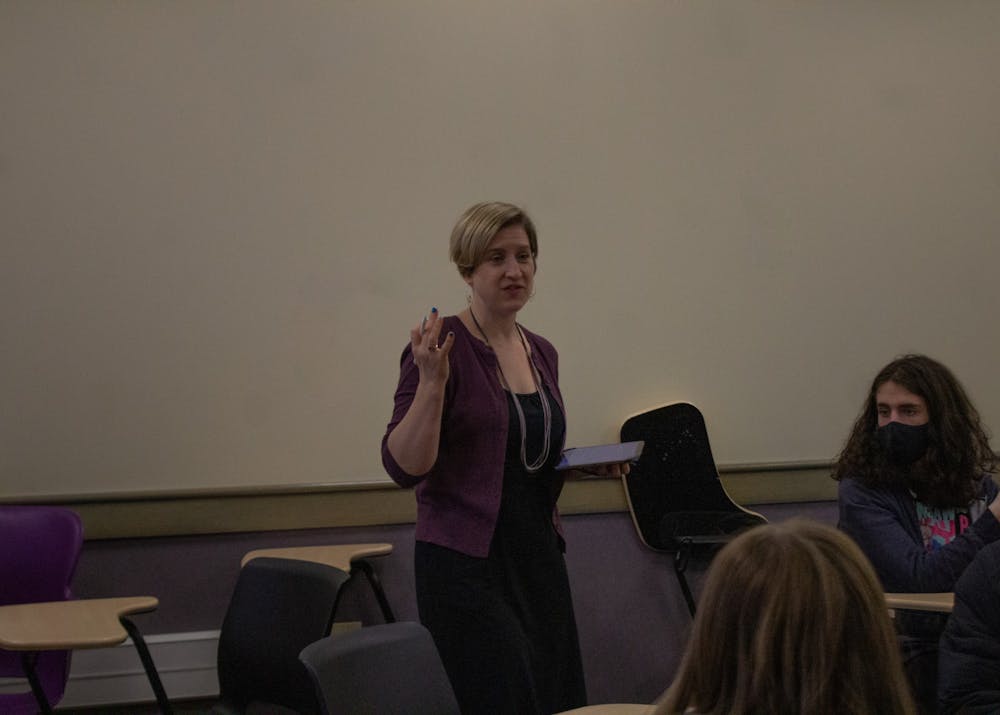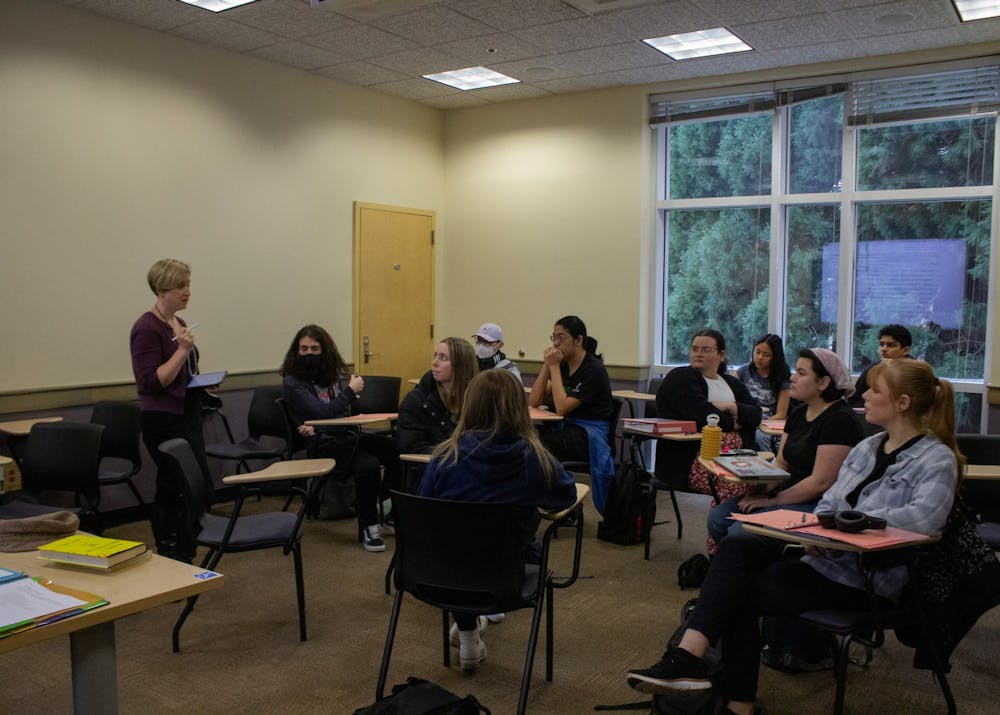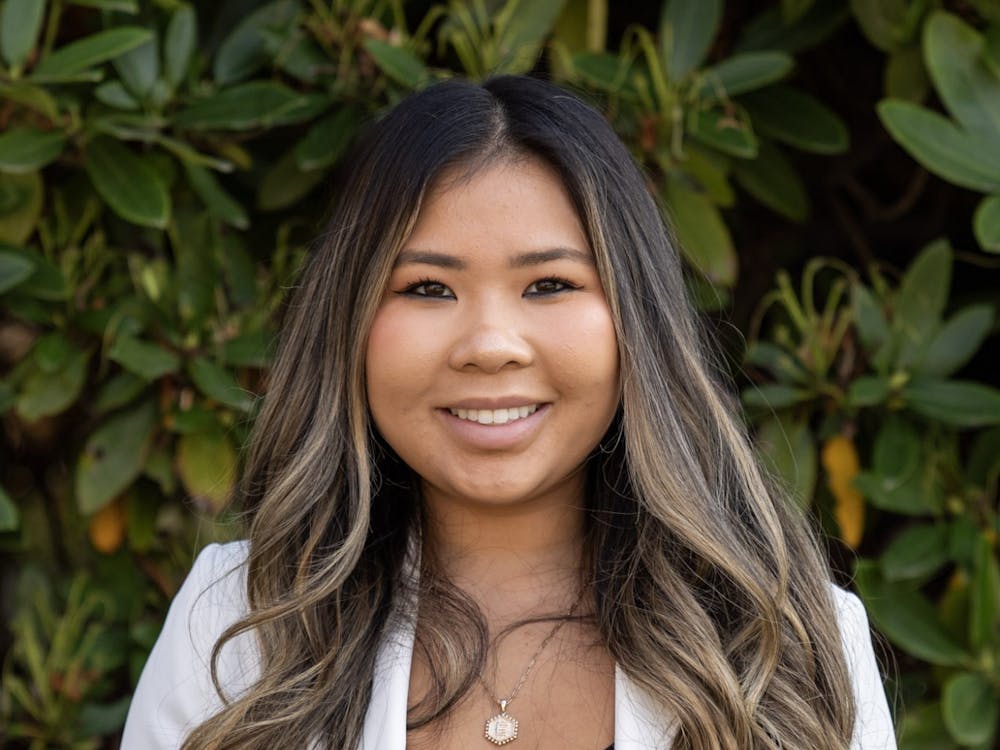When you think about math, you might envision gigantic equations with nasty numbers or a room of geniuses writing proofs and mathematical theories on whiteboards.
This spring semester, those stereotypes and generalizations are being challenged in a unique way with the newest addition to the core curriculum, Math 291X: Being Human in Math.
Math 291X was introduced as an explorative course, as denoted by the “X.” It offers a chance for students to assess and reflect on the impacts of math at a much broader scale and with a focus on humanity.
The class fulfills one of two explorative courses required for current freshmen, sophomores and future students who will take part in the revitalized core, which came to fruition in 2021.
The exploration courses were first introduced to the core in the 2022-23 academic year. This was done with the intention that first-year students would focus mostly on the foundation level courses before diving into the exploration level courses during sophomore, junior or even senior years.
Topics such as climate change, the counting of votes for an election, college admissions and other concepts that tie specific numerical data with much broader ethical issues are just a few of many things that will be discussed within the scope of Math 291X.
The intention is to emphasize that, although numbers often look authoritative on paper, there is always a need to analyze the way data impacts humans and the environment at a global level — especially with the high reliance on biased algorithms today.
Math professor Valerie Peterson originally offered the idea for the course and has been excited to teach it this spring. Math 291X focuses on topics that often get overlooked in the more math-intensive courses she teaches given time constraints.
“This is blending together a focus on social justice with a way of understanding the world through quantitative measures,” Peterson said. “[Math 291X] just seemed like a nice opportunity to develop something that addresses all those things.”

Math 201 is a prerequisite to the course since preliminary knowledge will be needed to interpret real-world mathematical models. Math 291X, however, does not focus heavily on more involved math topics such as complex differential equations.
Peterson didn’t want this requirement to discourage students from enrolling and instead sees it as an opportunity for students to balance fundamental calculus concepts with ethical considerations.
One of the texts Peterson is using in the development of the course, titled “Weapons of Math Destruction," zooms out from the more technical math concepts and instead focuses on the big data and algorithms to emphasize the inherent bias behind human-designed programs.
The priority for Peterson is to keep classroom discussion varied and timely so that students can discuss relevant ethical issues that they care about.
“There will be a student project,” Peterson said. “Everybody is going to have to pitch in the first couple weeks of class: ‘Two minutes — what’s your idea for how math or stats could be used to make something in your sphere of existence a little bit better?’ It’s very personalized and it doesn’t depend on any particular content.”
Beyond Math 291X, other unique courses in this explorative category such as Core 331X: Chemistry in Art or Theology 391XA: Spirituality and the Arts offer students a variety of subjects to explore outside their respective majors.
“[For] any exploration-level class, we ask that they intentionally try to weave together two different habits of the heart and mind,” Core Curriculum Director Andrew Guest said. “I really appreciate Dr. Peterson putting a lot of good thought into [the course] and trying to fit it into this new model and this way of thinking about the liberal arts.”
Math 291X specifically addresses two core habits of heart and mind: scientific and quantitative literacy and problem solving in addition to the commitment to diversity, inclusion and the common good.
This unique combination of habits has Peterson and Guest hopeful for the course outcomes.
Michael Lang is a member of the editorial board for The Beacon. He can be reached at langm24@up.edu.








